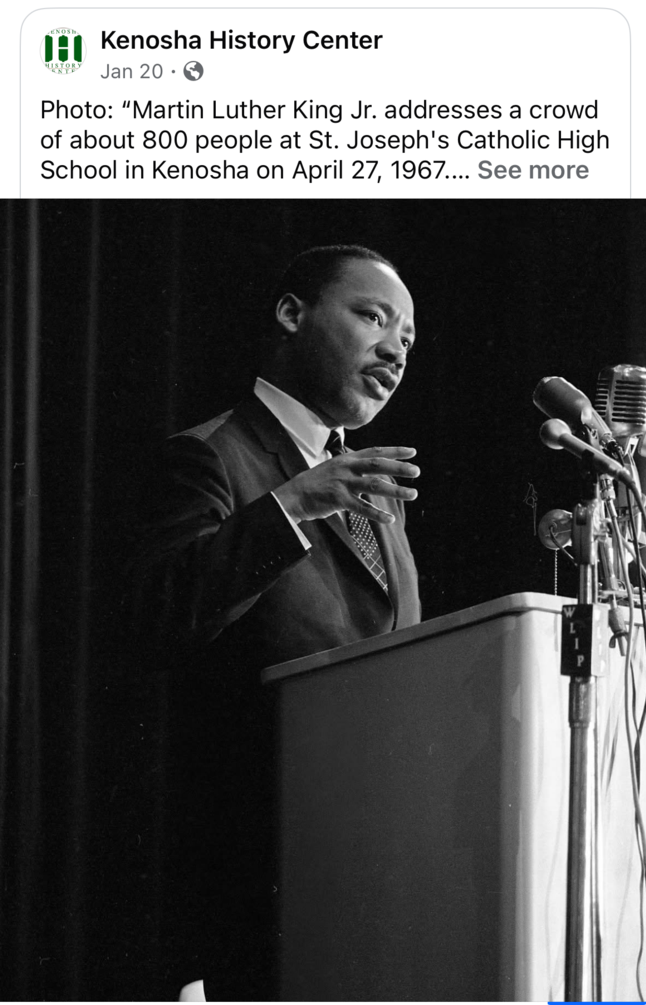Classes of 1953 - 2025
MLK visits St. Joe's
Martin Luther King Jr. addresses a crowd of about 800 people at St Joseph's Catholic High School in Kenosha on April 27, 1967. This photo was published in the April 28, 1967, Milwaukee Journal and Sentinel. Used under fair use rules.
The third Monday in January of each year is dedicated as Martin Luther King Jr. Day. Signed into law by Ronald Reagan in 1983, it celebrates the birthday of Dr. Martin Luther King, Jr. Because of the Uniform Monday Holiday Act of 1968, all Federal holidays fall on a Monday; MLK’s birthday is, in fact, January 15th. Despite entering Federal law in 1983, becoming effective in 1986, it was not observed in all states until the year 2000. In 1994 it was paired with a call for a day of service, to encourage people to volunteer to help their community. The only other Federal day of service is on the anniversary of 9/11.
In late April 1967, less than a year before being assassinated in Memphis, MLK visited Kenosha and spoke at St. Joseph High School as part of a lecture series organized by the UW Extension in Kenosha. The 27th of April was a busy day. In the morning, he spoke at the University of Minnesota, got on a plane to Chicago, and drove to Kenosha in the afternoon. He spoke to the public in the evening, and then spoke to the press.
As about a half dozen protesters walked outside carrying signs containing threats, invectives, and calls for minorities to be deported or killed (the American Nazi Party formally announced their in-person protest, and had also picketed a talk by James Meredith at Carthage College two weeks before), and layers of police protection surrounded St. Joseph after bomb threats, King took the stage around 8pm. The crowd was quiet, according to Kenosha News Sports Editor Jim Kornkven, in awe. It was a free, but ticketed, event, with somewhere around a thousand people allowed in the doors; the Kenosha News reported 1000, the Milwaukee newspapers reported 800. Some people were turned away when they arrived to see King but didn't have a ticket. Counter-protesters, with anti-war literature, were in attendance as well.
King spoke without a script, primarily focusing on history and present circumstances of inequality in American society: that people of color are systematically denied the necessary access, politically and economically, to become equal on their own; that integration—sharing the structures of power—is necessary and mere tokenism cannot achieve any result. He noted that “it’s all right to say that a man should lift himself by his own bootstraps, but it is a cruel jest to say that to a bootless man.” Perhaps reading the room well, King only referenced the Vietnam War in terms of money spent, despite having turned to an anti-war stance in other venues.
The crowd came to listen, maybe to understand, and seldom interrupted the speech with applause or any noise at all until a standing ovation at the close of his speech.
